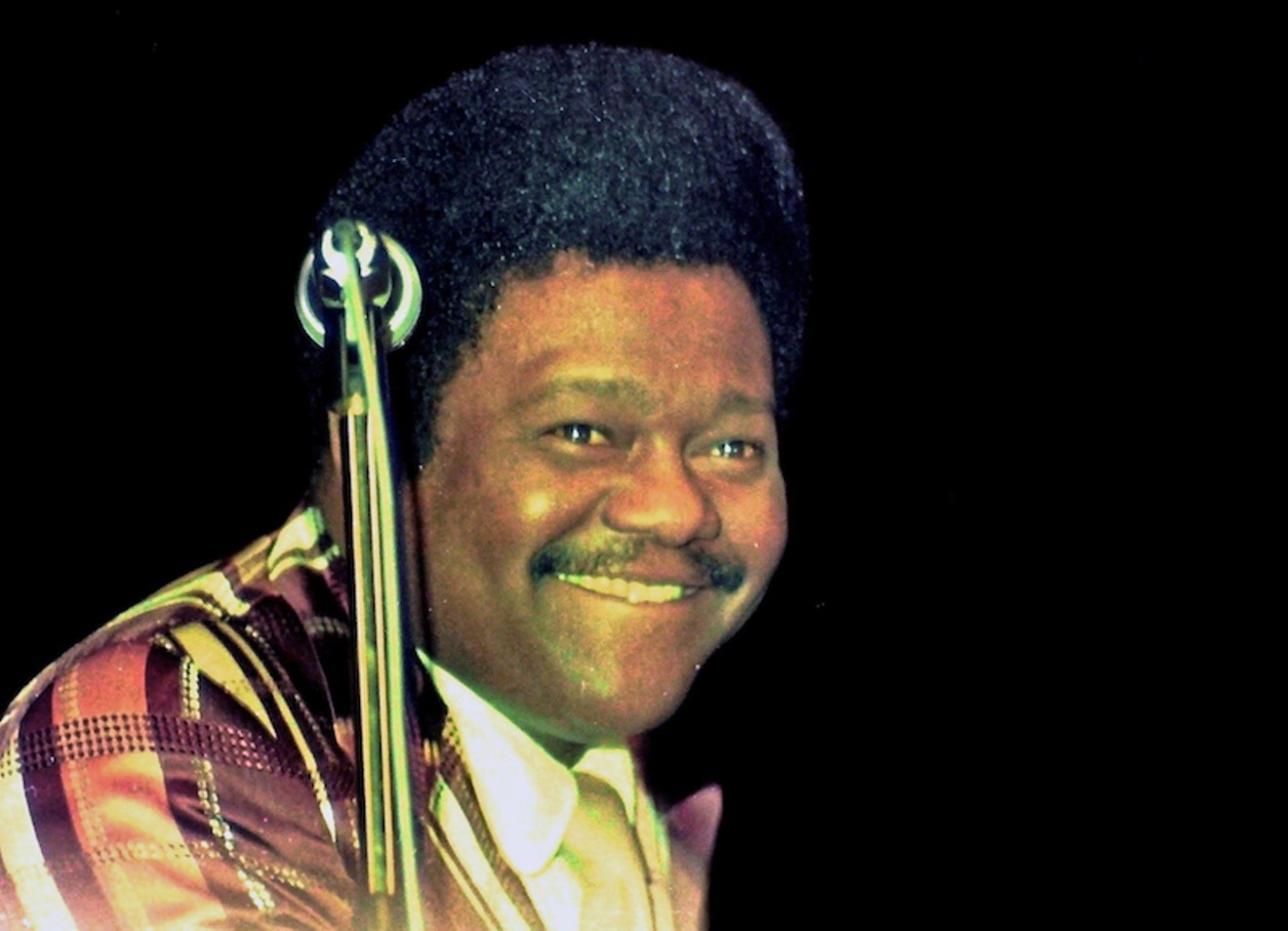The New York Times reports that Domino, who was 89, died at his home near New Orleans; his death was confirmed by his brother-in-law and road manager, Reggie Hall.
Sometimes nicknamed “The Fat Man” thanks to one of his early hits, Domino belonged to that class of musicians who revolutionized the music world from the mid-1950s onward by cross-breeding placid popular tunes with the more raucous and often transgressive sounds of the rural and urban South, setting off social change that resonated far beyond the jukebox at the neighborhood malt shop.
Domino was raised in New Orleans’s Lower Ninth Ward, where he could often be seen driving around in his pink Cadillac even in his later years. The youngest of eight children, he came from a musical family; his father was a respected violinist in New Orleans, and his brother-in-law taught him the piano.
A product of his frequent collaborations with producer Dave Bartholomew, Domino’s profile in the New Orleans scene rose quickly during the late 1940s and early ’50s. “The Fat Man,” recorded for Imperial Records in 1949, sold more than a million copies in four years, the first record of its kind to do so.
He also played piano on another early rock and roll hit, Lloyd Price’s “Lawdy Miss Clawdy” in 1952. (Elvis Presley cut a version on his self-titled 1956 album.) “Ain’t That a Shame” was Domino’s first real smash, reaching the Top 10 in 1955. When the white pop singer Pat Boone’s version reached No. 1, it was a stark reminder that even the pop charts were not immune to the racial segregation of the time — though of course successes like Domino’s were early harbingers of the coming changes in the wind.
According to the Times, Domino had close to 40 Top 40 hits overall, most coming in the 1950s and early ’60s, and sold more than 65 million singles. He retired from touring in the early 1980s but continued performing regularly around his hometown.
His home was flooded during Hurricane Katrina in 2005; Domino evacuated, but not before rumors of his death began circulating. He was the first artist announced for the 2006 lineup of the New Orleans Jazz & Heritage Festival, where he had appeared many times, but was unable to perform because of illness. One of his last public performances came in November 2007 at New York’s Pink Elephant club, during a fundraiser for the New Orleans-based nonprofit Tipitina's Foundation. When Price, who was also performing, invited Domino to sit in on “Lawdy Miss Clawdy,” The New York Times’ Nate Chinen wrote:
Just as strikingly, Mr. Domino came alive. His face lit up as he played, and at one point he quietly mouthed the words. For a moment, at least, he was luxuriously comfortable as a sideman. While he didn’t stay on for “Stagger Lee” — another trademark hit for Mr. Price, and another dynamo — he had gone above and beyond the call. For the next hour or so, he was visible in a booth along the club’s upper tier.
Some of Domino’s songs, such as “Ain’t That a Shame,” “Blueberry Hill” and “My Blue Heaven,” formed a template for a style that would shortly be known as swamp pop, and whose popularity persists in certain quarters of the Gulf Coast to this day. Others, like “I’m Walkin’,” “I’m In Love Again” and “My Girl Josephine,” fell more in line with the tradition of New Orleans R&B players — Professor Longhair, Allen Toussaint, Dr. John, The Meters, the Neville Brothers and many others — who have sparked countless second-line celebrations. Even the offbeat rhythm of “Be My Guest” has been cited as an inspiration for ska.
Either way, music fans in this part of the world owe Domino a considerable debt of gratitude, even two or three generations removed. His jubilant, heartfelt songs gave our parents and grandparents such joy — and probably certain other ideas — that if he had not come along, many of us might not even be here at all.








